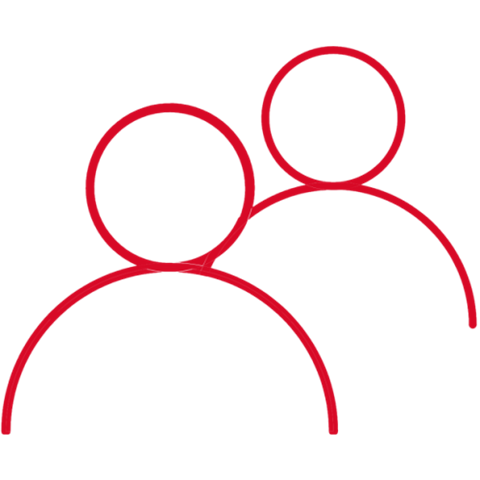Host Robin Charney welcomes FMCG marketer Caroline Hipperson to the latest episode of The Next Round podcast. After stints at Unilever, GlaxoSmithKline, Bacardi and Holland & Barrett, Caroline Hipperson is the latest guest to chat with Robin for The Next Round Season 3 Podcast. Caroline arrived at pladis Global as Chief Marketing Officer UK&I on the eve of the COVID-19 pandemic, and is currently responsible for brands such as McVitie’s, Carr’s and Jacob’s, to name but a few.
With the emphasis on fast, Caroline and Robin discuss the main challenges facing the FMCG sector today and how such rapid and seismic change can provide the perfect opportunity for creative marketers to thrive.
You can listen to the full episode here, but we’ve picked out a few key insights and highlights from Robin and Caroline's discussion below:
You can listen to the full episode on:
What are the biggest changes in the FMCG sector and its marketing?
FMCG has never been more exciting than now, because fast moving consumer goods have just become faster. It’s so speedy right now, and the biggest challenge for marketing right now is just keeping up. There’s a need to understand changes in trends and all kinds of new regulations (particularly government initiatives related to health and wellbeing), to accommodate consumers who are consistently seeking new experiences.
This pace is what excites Caroline. It nurtures creativity, and provides opportunities for good marketeers and creators to really get ahead - if you have constant change, nothing is stable, and if nothing is stable, you have an advantage if you’re a really creative marketing professional.
How does brand heritage factor in while moving forward and going through a marketing transformation?
As Caroline eloquently puts it, companies that stand still don’t go anywhere by definition. In the case of pladis, this is probably more true than in most cases. If you really understand the vision of a brand (such as why the Jacobs brothers founded the company), you can understand why their products became so popular and relevant both originally and now.
Having that history really helps pladis to be authentic and real during their transformation, and to have real connection with their consumers today. If a brand doesn’t have that history, there’s even more pressure to create relevance - if a brand was born with relevance, there’s a duty to keep that updated over time. A rich heritage is an advantage, but what you must do is ensure it doesn’t remain in the past, but continues to evolve with consumer behaviour, needs, wants and desires.
Has a customer-centric brand approach also meant going through a marketing transformation?
Caroline is certain on this point, and the answer is yes. When she joined the company in April 2020, during the first lockdown of the pandemic, pladis were very siloed in the way they organised their marketing. They structured around business units, which meant brand managers from different arms of the business weren’t sharing insights or communicating effectively - things were very commercially driven.
This is not a bad thing in itself but if this means you’re also siloed in conversation and in your understanding of consumers, that’s not a good thing. Caroline’s task was to bring together the marketing organisation, to build capability across every field from insight to innovation or brand building. It’s a more traditional way of organising with brand & marketing directors and teams for each division, but crucially shared insights across all brands.
Under Hipperson, pladis has reorganised its people to be more collaborative, in order to get the best out of everyone. They have massively increased their capability, nearly 50% of the organisation are new this calendar year. In terms of capabilities, the most important currently is creativity, as it’s at the centre of everything pladis is working on - they needed an organisation that nurtured new ideas, and could bring those ideas to life. When they worked in siloes, that didn’t exist.
How do you build creativity into your marketing ecosystem?
The kind of creativity that drives fresh perspectives and ideas in the way a brand approaches its marketing is hard to find - but you can see it in people. It’s almost the same as when you define leadership, it becomes all about the soft skills, the understanding etc.
In the case of creativity, it’s the ability to put yourselves into somebody else’s shoes, and really being able to understand people and think ‘I’ve got a solution for that’ - whether it’s a product, or a way of talking to consumers. It’s being open to ideas and not being closed, and acting like sponges. If there’s one word to describe it, it’s curiosity. If you’re curious about the world, people, products, competitors, marketplaces - and you have that natural curiosity and way of processing it and bringing it into ideas, that’s what the brand is looking for.
What is your perspective on outsourcing vs insourcing?
There’s no right or wrong - it depends on the company and your commercial structure, how much headcount you can afford to have on your P&L versus the flexibility you feel you need to build in, and where you want that flexibility to be. Often when you look at outsourcing models, they’re there to create flexibility in the short term.
Therefore, Caroline’s starting point is to say ‘we’ll hire well-rounded marketeers who know how to do the full job in all its facets, and we’ll work with agencies who are partnering with us to deliver that.’ Rather than saying ‘we’ll outsource digital, or e-commerce, etc’ which was often a model of the past. pladis doesn't have an in-house agency, they believe in the model that this work is best done by the people who know it best, so all of their creative development work sits with external agencies, and longstanding relationships rather than shorter ones.



